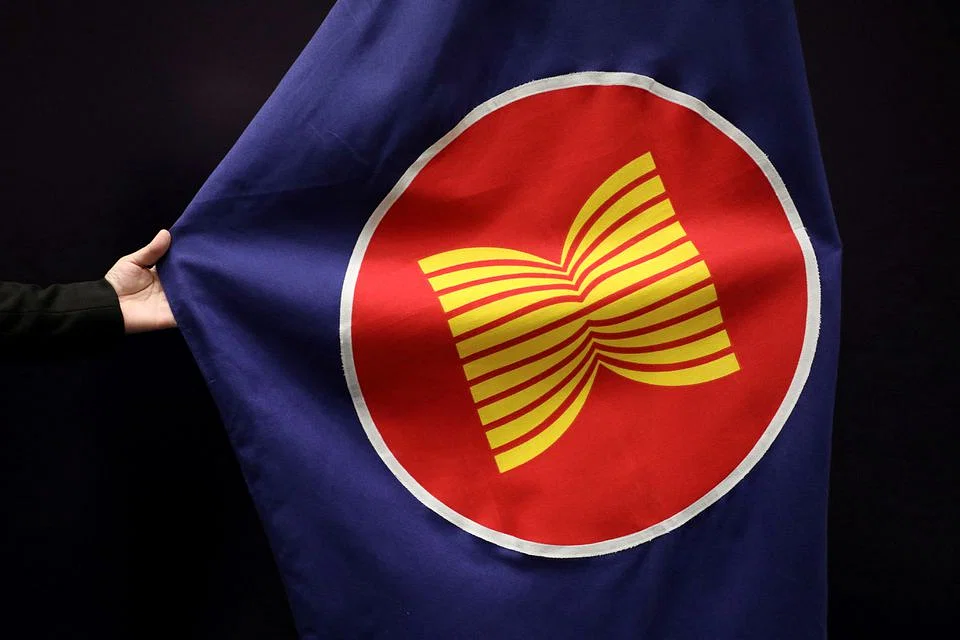ASEAN and Its 50 Years of Failure in Ending Wars and Genocides
TRANSCEND MEMBERS, 31 Jul 2023
Maung Zarni | Prothom Alo – TRANSCEND Media Service
16 Jul 2023 – Imagine John Lennon and his mates from Liverpool, strumming three acoustic guitars and leading the anti-war march in NYC or London, singing the iconic song “Give peace a chance,” or Pete Seeger performing his “Where have all the flowers gone….” Who in their right mind would oppose peace or settling disputes over tea or cocktails?!! But Myanmar, my birthplace soaked in multiple violent and structural conflicts since the end of the WWII, has been a site not just of civil war and genocides – note the plural – but also of ceasefire talks, mediation, pro-peace protests, nationwide “peace dialogue” for more than 60 years.
The fact that Myanmar has one of the world’s longest non-stop civil wars of fluctuating intensity AND the longest history of invariably failed “dialogue”, “mediation”, “peace” and “ceasefire” initiatives, with and without the involvement of external actors is extraordinary. The country and its elites of all stripes and colours deserve a Nobel Peace Prize for trying both wars and peace, and getting nowhere remotely close to even a moratorium on assassination of the military personnel and summary executions of resisters, let alone genuine ceasefires or lasting peace.
In the last nearly 35 years, I have been on both sides of the argument- for and against dialogue. Why not? To paraphrase John Maynard Keynes’ famous empirical stance, I change my mind/view if the reality/evidence changes. The reality is there is absolutely no appetite for suing for peace, neither among the genocidal military junta – the 3rd of the successive regimes since 1962 – nor the armed resistance, which enjoys the single broadest support from different ethnic communities – most importantly, the Bama Buddhist majority that have captured the state and dominant society since independence.
These days one hears of two buzz words – spins really: “centrality” and “cohesion” of ASEAN on Myanmar’s perennial crisis. If the absence of peace on the ground in Myanmar is evident, the complete and utter impotence of ASEAN, both institutionally and at the highest level of leadership, is equally self-evident. One just needs to give a quick glance at the underwhelming headlines about ASEAN summits, year in and year out. The bloc has proven itself incapable of dealing with even the “Mother of All Crimes” – Lemkinian genocides in its own backyard, namely the Khmer Rouge genocide, the Rohingya genocide.
I asked my Malaysian brother Saiffudin, when he was emerging as the most supportive ASEAN foreign minister, “What inspires you to take a firm stance and speak out (against Myanmar state’s crimes)?” His response: “We failed in Cambodia. And I don’t want us to fail again in Myanmar.” As notable and commendable as his sentiment and rationale may be, ASEAN is failing again in Myanmar. Speaking in the dubious discourse of “state” it in effect picks the genocidal criminals to chair the ASEAN naval chiefs’ Conference for 2024. The bloc also picks Myanmar (that is, the criminal regime officials) to chair the EU-ASEAN trade relations process!!! ASEAN behaves absolutely schizophrenic when it comes to dealing with Myanmar.
Over the last decade, the former Malaysian Prime Minister Dr Mahathir Mohammad, who turned 98 last week, and who led the efforts to fast track Myanmar, lamented his decision on more than one occasion. His predecessor current PM Anwar Ibrahim has also been pushing for stronger measures to leave Myanmar out of ASEAN proceedings. Rightly the bloc has bigger fish to fry. But for states driven solely by self-interests, no fish is small. For instance, Thailand’s nine-year-old military junta that operates with the twin facade of a constitutional monarchy and electoral politics, is still benefitting from its close ties with the Myanmar junta while Singapore simply repeats its behavior as a genocide “collaborating” state, which date back to Khmer Rouge’s short-lived but deadly era during which the city state sold fuel to Pol Pot and purchased fish from the genocidal communists wholesale straight from the Gulf of Cambodia.
Both ASEAN states – Thailand and Singapore – appear as two top 5 arms sellers to Myanmar junta in the explosive if unsurprising United Nations report on the international arms trade with the criminal regime in Naypyidaw. With ASEAN neighbors like these, who needs enemies? ASEAN as a bloc will, without a doubt, continue to repeat its tried and failed policies and frameworks, whatever their names. From various capitals of its rotating chairs, it’s politicians and functionaries will continue to tout its record of “peace and prosperity” in the region over the last 50 years, adding, delusionally, insult to the injuries of millions of victims of the two genocide and civil wars and uprisings in Cambodia and Myanmar, 20,000 Filipinos executed or otherwise murdered in cold blood under the Duterte government, or thousands of Thai murdered in Southern Thailand’s ongoing conflict.
The gulf between the impact of ASEAN in Myanmar affairs and the spins – “centrality” “cohesion” “inclusive dialogue” blah blah blah – is jaw dropping.
Now I must publicly caution ASEAN against taking Aung San Suu Kyi’s reported “support for dialogue” biblically – “a positive development”, as its joint official statement out of last week’s Foreign Ministers Meeting in Jakarta dubbed it. She has made horribly misguided policies and decisions, including jailing two Reuters journalists in Yangon for reporting on Rohingya genocidal massacres. Intelligent and impactful policies are typically anchored in the understanding of empirical realities or evidence. The bloc’s apparent delusions and media spins around Myanmar are no substitute for hard-nosed policies.
While Indonesia was holding 110 meetings over 7 months since it took over the bloc’s chair from Cambodia in January this year, Myanmar junta has been busy destroying over 64,000 homes, jailing over 20,000 dissidents, and launching hundreds of airstrikes against civilians. The gulf between the impact of ASEAN in Myanmar affairs and the spins – “centrality” “cohesion” “inclusive dialogue” blah blah blah – is jaw-dropping.
___________________________________________
 A Buddhist humanist from Burma (Myanmar), Maung Zarni is a member of the TRANSCEND Network for Peace Development Environment, former Visiting Lecturer with Harvard Medical School, specializing in racism and violence in Burma and Sri Lanka, and Non-resident Scholar in Genocide Studies with Documentation Center – Cambodia. Zarni s the co-founder of FORSEA, a grass-roots organization of Southeast Asian human rights defenders, coordinator for Strategic Affairs for Free Rohingya Coalition, and an adviser to the European Centre for the Study of Extremism, Cambridge. Zarni holds a PhD (U Wisconsin at Madison) and a MA (U California), and has held various teaching, research and visiting fellowships at the universities in Asia, Europe and USA including Oxford, LSE, UCL Institute of Education, National-Louis, Malaya, and Brunei. He is the recipient of the “Cultivation of Harmony” award from the Parliament of the World’s Religions (2015). His analyses have appeared in leading newspapers including the New York Times, The Guardian and the Times. Among his academic publications on Rohingya genocide are The Slow-Burning Genocide of Myanmar’s Rohingyas (Pacific Rim Law and Policy Journal), An Evolution of Rohingya Persecution in Myanmar: From Strategic Embrace to Genocide, (Middle East Institute, American University), and Myanmar’s State-directed Persecution of Rohingyas and Other Muslims (Brown World Affairs Journal). He co-authored, with Natalie Brinham, Essays on Myanmar Genocide.
A Buddhist humanist from Burma (Myanmar), Maung Zarni is a member of the TRANSCEND Network for Peace Development Environment, former Visiting Lecturer with Harvard Medical School, specializing in racism and violence in Burma and Sri Lanka, and Non-resident Scholar in Genocide Studies with Documentation Center – Cambodia. Zarni s the co-founder of FORSEA, a grass-roots organization of Southeast Asian human rights defenders, coordinator for Strategic Affairs for Free Rohingya Coalition, and an adviser to the European Centre for the Study of Extremism, Cambridge. Zarni holds a PhD (U Wisconsin at Madison) and a MA (U California), and has held various teaching, research and visiting fellowships at the universities in Asia, Europe and USA including Oxford, LSE, UCL Institute of Education, National-Louis, Malaya, and Brunei. He is the recipient of the “Cultivation of Harmony” award from the Parliament of the World’s Religions (2015). His analyses have appeared in leading newspapers including the New York Times, The Guardian and the Times. Among his academic publications on Rohingya genocide are The Slow-Burning Genocide of Myanmar’s Rohingyas (Pacific Rim Law and Policy Journal), An Evolution of Rohingya Persecution in Myanmar: From Strategic Embrace to Genocide, (Middle East Institute, American University), and Myanmar’s State-directed Persecution of Rohingyas and Other Muslims (Brown World Affairs Journal). He co-authored, with Natalie Brinham, Essays on Myanmar Genocide.
Tags: ASEAN, Asia, Aung San Suu Kyi, Buddhism, Burma/Myanmar, Genocide, Genocide Convention, Rohingya, Warfare
DISCLAIMER: The statements, views and opinions expressed in pieces republished here are solely those of the authors and do not necessarily represent those of TMS. In accordance with title 17 U.S.C. section 107, this material is distributed without profit to those who have expressed a prior interest in receiving the included information for research and educational purposes. TMS has no affiliation whatsoever with the originator of this article nor is TMS endorsed or sponsored by the originator. “GO TO ORIGINAL” links are provided as a convenience to our readers and allow for verification of authenticity. However, as originating pages are often updated by their originating host sites, the versions posted may not match the versions our readers view when clicking the “GO TO ORIGINAL” links. This site contains copyrighted material the use of which has not always been specifically authorized by the copyright owner. We are making such material available in our efforts to advance understanding of environmental, political, human rights, economic, democracy, scientific, and social justice issues, etc. We believe this constitutes a ‘fair use’ of any such copyrighted material as provided for in section 107 of the US Copyright Law. In accordance with Title 17 U.S.C. Section 107, the material on this site is distributed without profit to those who have expressed a prior interest in receiving the included information for research and educational purposes. For more information go to: http://www.law.cornell.edu/uscode/17/107.shtml. If you wish to use copyrighted material from this site for purposes of your own that go beyond ‘fair use’, you must obtain permission from the copyright owner.
